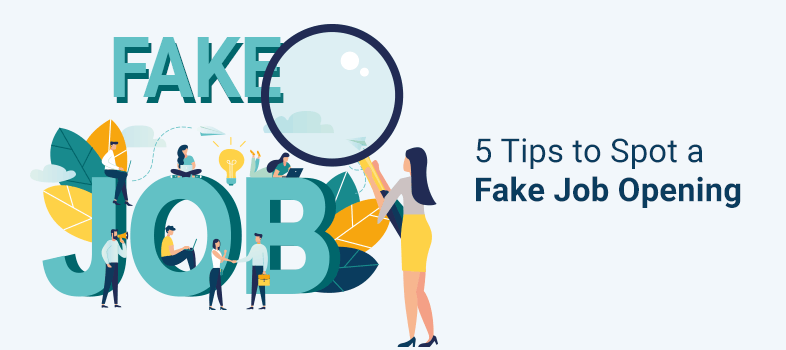While the pandemic has changed the way we work, the digital workplace has created an endless number of chances for fraudsters and opportunists. We all know someone who lost their job due to budget cuts and more and more students prepare to enter the workforce, making the number of job searchers grow, it is critical to distinguish between a phoney job posting and a legitimate one.
Even intelligent job hunters are vulnerable. Scammers are aware of how difficult it can be to find work, and they play on this vulnerability by luring individuals with employment offers. To allure people, they would often promote on channels utilised by employment consultancy businesses and actual employers. Furthermore, they make claims about getting you a job offer that does not exist, and all they want for in exchange is payment for their so-called services.
So, if you’re wondering how to tell whether a job offer is a hoax, keep reading to get a good idea.
1. Receiving Interview Call Even When You Never Applied
A recruiter contacts you and informs you that they discovered your CV online. “You’re an excellent fit for this fantastic position,” they remark. Don’t be tricked by your perception of your good fortune. While it is possible, there is a significant chance that this is a hoax. Listen to them out, but then do your homework. Most vacant positions receive a large number of applications, thus it is uncommon for a recruiter to have to comb job boards for appropriate people.
2. The Compensation is Too Wonderful to be True
If you’re looking for work, you’re certainly aware of the typical income for your position and degree of expertise. Be careful if you come across a job posting that offers that position for two or three times the average income. Even if a corporation wants to get the best of the best, it can most likely do so by outbidding the competitors on compensation by a modest margin. Paying double the going rate is terrible business and unlikely to occur. You’ve heard it before: if something appears to be too good to be true, it generally is.
3. You Can’t Find the Job Opening Online
Believe in your research. Consider it a red signal if you see a listing but can’t discover a solid website for the firm. The same is true for recruiters; if you speak with someone about a position that may be a good fit for you, but you can’t locate the recruiter on LinkedIn or a corporate website, consider it a red flag.
4. Unprofessional Communication
You’ve probably seen this before: When you browse a job posting or receive an email, the phrasing is simply… off. It might be extremely formal and uncomfortable, or it could be riddled with grammatical and punctuation issues. This is not acceptable in a professional setting. A job advertising should be simple to read and comprehend, but it doesn’t rule out the possibility of a mistake or two. Consider this: if a job advertising is unprofessional and unpleasant, how would it feel to work for that company?
5. You are being asked to pay for something.
You’ve been hunting for a work-from-home opportunity for a while now, and you’ve finally discovered one that seems fantastic. The only issue is that you’ll be asked to pay some money up front to help fund the equipment you’ll need to get started. Don’t fall for it; this is a straightforward take-your-money-and-run scam. No legitimate organisation should require you to pay them to get job-related equipment. It’s as easy as that.
How to Avoid Job Scams?
- Look for anything unusual in the employment offer: Employment scams frequently provide indicators that might assist in identifying fraudulent employment. These might range from misspellings in job adverts and job offers to incorrect email addresses. If you receive a job offer from ‘google@yahoo.com,’ for example, you should think it is a hoax.
- Be wary of jobs that ask for your bank account information: You should never give your bank account information to anyone who makes you a job opportunity. These are creative ways to defraud you and steal your money.
- Apply for employment through reliable agencies: This is a great way to avoid Internet job frauds. Agencies will send your CV to legitimate firms, and you will receive the job offer through the agency.
- Trust your instincts: If a job offer seems too good to be true, it most likely is. When you receive a job offer, compare the compensation package with other job opportunities online.

